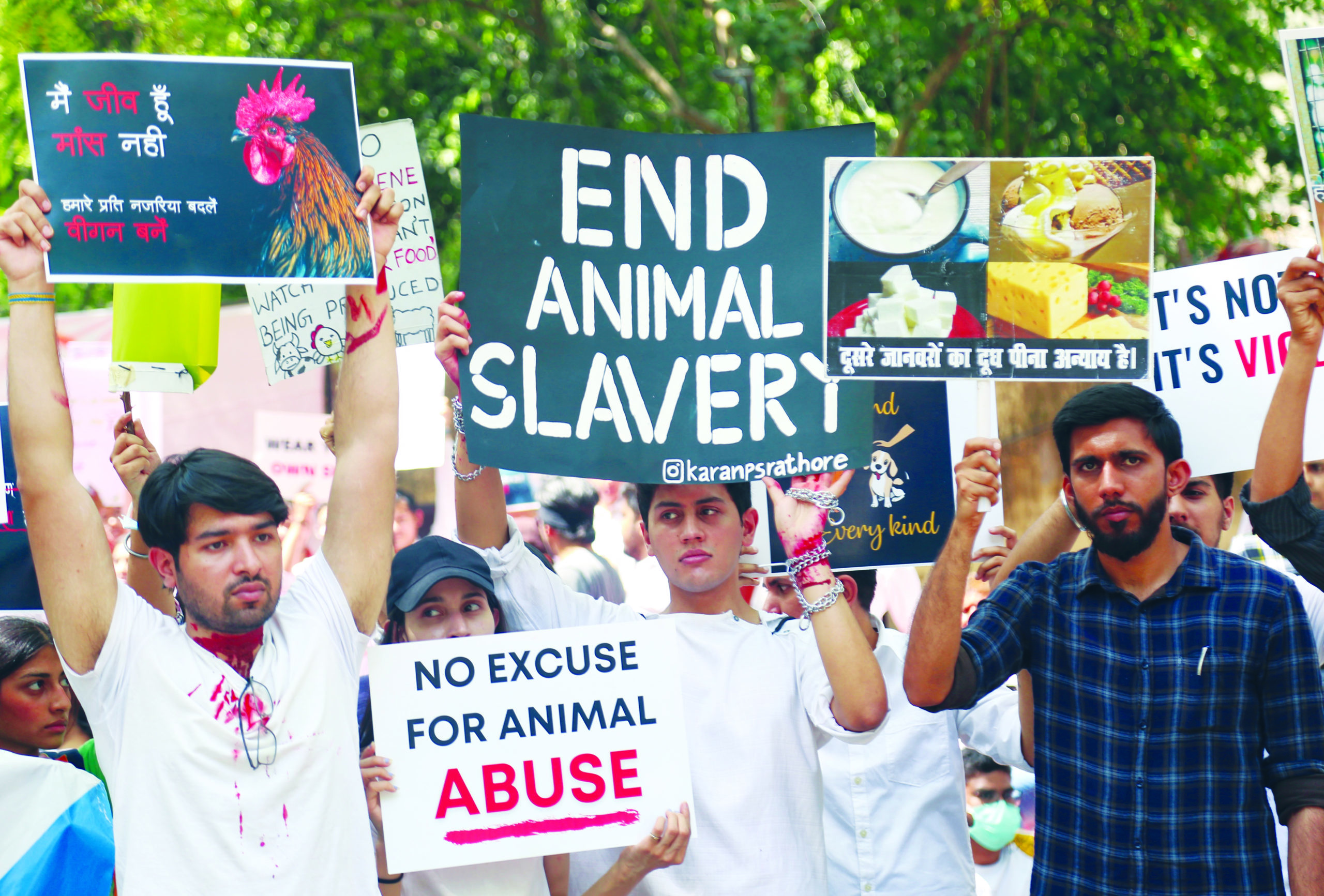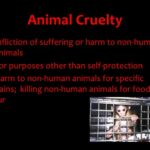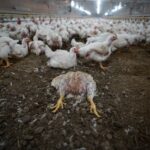The discourse surrounding veganism and anti-veganism is laden with emotive rhetoric and polarized viewpoints. One particularly contentious assertion made by some anti-vegans is the claim that vegans are indirectly responsible for killing animals. This statement may initially appear as a mere facetious retort aimed at mocking vegan principles; however, it reveals a deeper sociocultural context worth examining. To understand why such accusations persist, it is crucial to dissect several layers of philosophical, psychological, and social dynamics that are at play.
Firstly, the foundation of the conflict lies in the fundamental principles of ethical living. Vegans choose a lifestyle that seeks to minimize harm to animals. Their motivations often stem from a moral conviction that considers animal sentience and welfare paramount. In stark contrast, anti-vegans may either share none of these ethical considerations or hold differing perspectives regarding the human-animal relationship, potentially viewing animals as resources rather than fellow sentient beings. This dichotomy in worldview can lead to profound misunderstandings and, subsequently, accusations against the vegan community.
At the philosophical level, anti-vegans may accuse vegans of killing animals as a means to counter the moral high ground that many vegans assume. By asserting that vegans are still complicit in animal death—whether through crop production methods that inadvertently harm wildlife or through the broader implications of land use—they aim to undermine the vegan stance of ethical superiority. This argument relies on a utilitarian framework, where the consequentialist ‘greater harm’ argument is employed. They contend that the shift to a vegan diet does not entirely extricate one from the complexities of animal suffering and death.
Moreover, the accusation of being responsible for animal death can also be rooted in defensiveness. For many individuals, food choices are intertwined with identity, culture, and social belonging. When vegans vocally advocate for animal rights, anti-vegans may feel personally targeted, leading to a defensive reaction characterized by counteraccusations. This emotional resistance creates an adversarial dynamic, wherein anti-vegans deflect scrutiny from their own practices by shifting the blame onto vegans, thereby preserving their relational and cultural identity.
In addition, there is a psychological aspect to consider. The human psyche is inherently averse to cognitive dissonance—the mental discomfort experienced when holding two conflicting beliefs. For instance, an anti-vegan who enjoys meat may struggle with the ethical implications of animal suffering that accompany their dietary choices. By asserting that vegans are also guilty of causing animal death, they may subconsciously alleviate some of their dissonance. This peculiar manifestation of psychological defense serves to maintain their worldview while participating in behaviors that counteract their underlying moral compass.
Furthermore, the discourse is not just confined to philosophical debates or psychological distress—it has gained traction in social arenas. In many societies, veganism is still perceived as an outlier lifestyle, prompting a fear of social stigmatization among those who consume animal products. This social perception can lead to the sensation of being judged or marginalized by vegan communities, prompting anti-vegans to exhibit hostility. The rhetoric turns from mere disagreement about dietary preferences to a form of social resistance against more progressive viewpoints concerning animal rights, often resulting in the paradoxical claim that vegans are complicit in animal death.
It is also vital to analyze the role of economic interests in this discourse. The livestock and dairy industries wield substantial economic power, often disseminating narratives that disparage veganism. To protect their financial interests, these industries may promote the argument that veganism still implicates individuals in animal deaths, framing plant-based consumption as an inadequate solution to animal welfare concerns. Such narratives may be strategically positioned to engender skepticism regarding vegan ethics, thereby perpetuating the cycle of blame.
Furthermore, misinformation and misunderstandings abound, compounded by the complexity of agricultural practices. Critics may cite the death of various animals during crop harvesting processes to underscore their accusations. While it is true that conventional agriculture does result in unintentional harm to wildlife, research exists that delves into sustainable farming practices that prioritize animal welfare. A nuanced conversation regarding the intricacies of agricultural impact is often overshadowed by direct accusations, underscoring a failure to engage in sincere dialogue.
In conclusion, the claim that vegans are killing animals operates at the intersection of ethical discourse, defensive psychology, social dynamics, economic considerations, and misinformation. Unraveling these layers reveals a complex interplay of beliefs, fears, and societal influences that shape individual identities and attitudes towards food. Rather than viewing this accusation as a mere dismissal of veganism, it is imperative to recognize it as a portal into a deeper exploration of our ethical frameworks, food choices, and the societal structures that influence our understanding of animal rights. Engaging with these multifaceted aspects may provide an avenue toward constructive dialogue, fostering a more inclusive and empathetic conversation about animal welfare.








